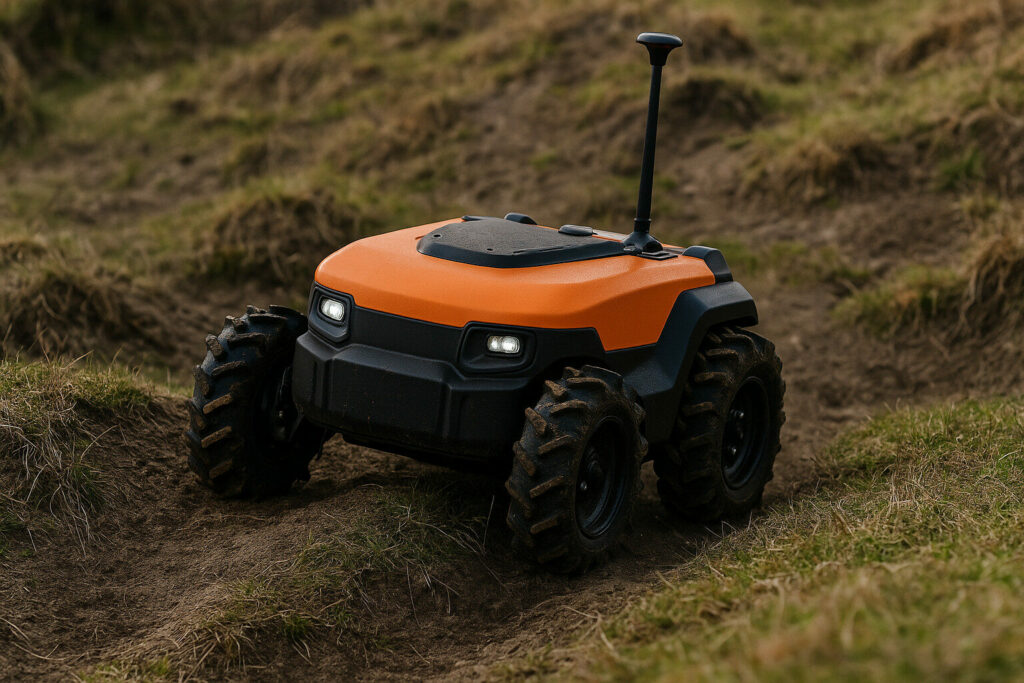- Free delivery over £195
- Delivery to UK & Ireland
- [email protected]
- 01366 500 828
- Manage my robot
Robotic lawn mowers are changing the game for grounds teams and facility managers. By handling day-to-day cutting, they free up your time for more skilled work — and some models are specifically designed to tackle rough, sloped, or uneven terrain with ease. From large commercial sites to awkward gradients, there’s a robotic mower built to handle it.
We’ve already covered the main benefits of robotic mowers, but what about when the ground gets challenging? Here’s how the robot mower can make rough terrain a non-issue.
Think molehills, dips, undulating fields, and sloped banks — these are the real tests. Many commercial robotic mowers are purpose-built for these conditions. Rough terrain robot mowers have: chunkier wheels, smarter navigation, and extra clearance give them the ability to cope where smaller units might struggle.
These mowers are ideal for school fields, sports pitches, country parks, golf course roughs, or any site with large open spaces and variable terrain. If it’s off-road, these machines are built for it.
It starts with the wheels. Models built for difficult conditions feature deep tread tyres and strong drive motors to maintain grip, even on wet or sloping ground. Some even include sensors that detect ground resistance and adjust movement patterns accordingly.
Rough terrain doesn’t just mean bumpy ground — it means unpredictable obstacles. That’s why many high-end models come with advanced sensors and obstacle avoidance systems, allowing them to reroute when faced with unexpected items or steep gradients. This is where tech like OAS (Obstacle Avoidance System) gives you a serious edge on complex commercial sites.
These machines often have multiple blades and long battery life to allow for extended cutting time in areas with fewer straight lines or trickier access. RTK GPS also plays a vital role — a high-precision positioning system that eliminates the need for boundary wires and lets the mower follow exact routes. That’s particularly useful when you’re mowing sites like golf courses, hillsides, or large estates. Learn more about commercial robotics and how it works.
Check out these resources for more insights into what makes a great commercial robotic mower:
Not every robotic mower will suit every site. Flat gardens with minimal obstacles can get by with entry-level machines. But if you’re mowing a commercial space with bumps, slopes, and variable grass types, it’s worth investing in a rough-terrain-ready model.
If you’re unsure where to start, explore our full range of commercial robotic mowers with GPS or speak to the GroundTech team for a tailored recommendation.
Let your robot mower handle the rough stuff — and keep your team focused where it matters most.

Based in Norfolk and Suffolk, GroundTech supplies and installs commercial robot mowers and outdoor robotics across the UK. We support golf courses, sports clubs, schools, councils, large private estates and homeowners – backed by over 20 years of turf care and automation expertise.